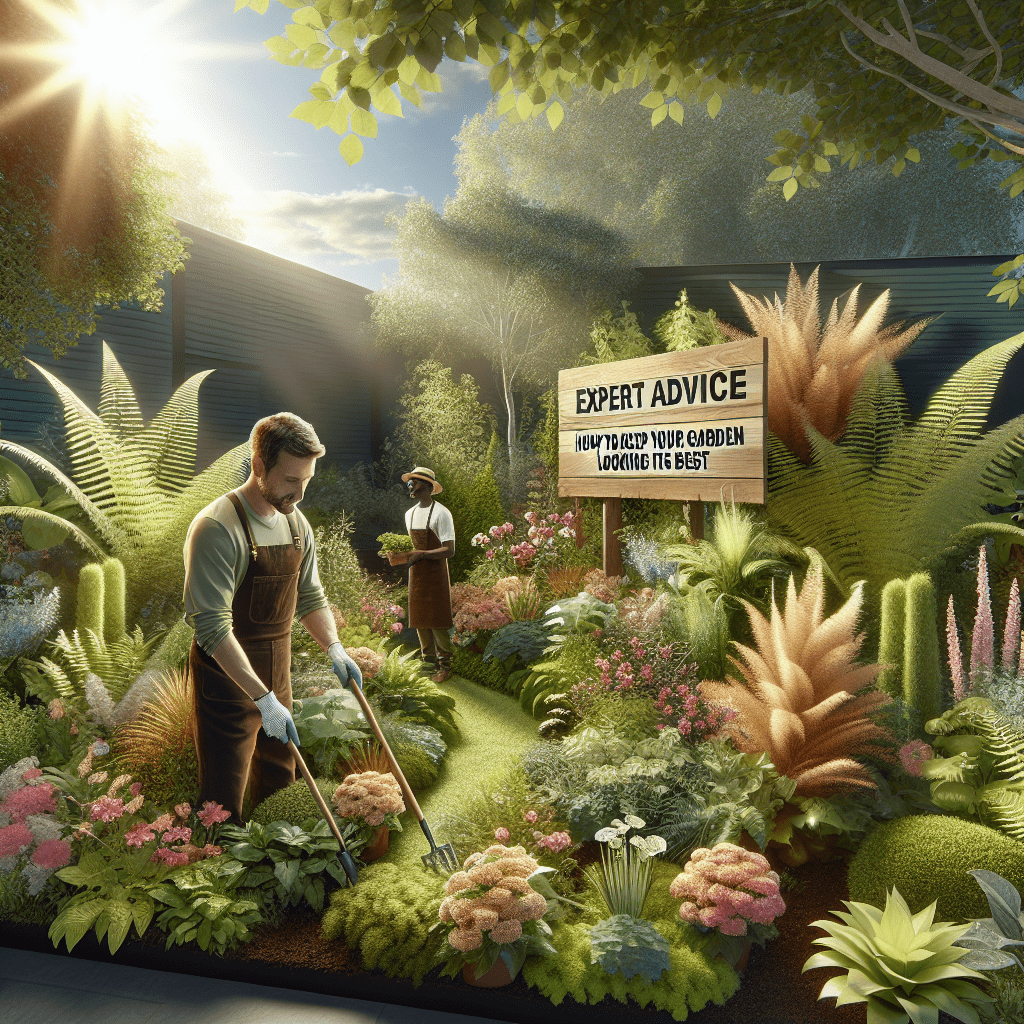Gardening is a wonderful hobby that can bring joy and beauty to your outdoor space. However, maintaining a garden can be challenging, especially if you’re new to gardening. To help you keep your garden looking its best, we’ve compiled expert advice and tips that will ensure your plants thrive and your garden flourishes.
1. Start with a Plan
Before you start gardening, it’s essential to have a plan in place. Determine the layout of your garden, what plants you want to grow, and how much sunlight and water they need. Creating a plan will help you stay organized and ensure that your garden looks cohesive and well-designed.
2. Choose the Right Plants
When selecting plants for your garden, consider your climate, soil type, and the amount of sunlight your garden receives. Choose plants that are well-suited to your garden’s conditions to ensure they thrive. Additionally, opt for a mix of annuals and perennials to keep your garden looking beautiful year-round.
3. Proper Watering
Watering is essential for a healthy garden, but it’s important to water your plants correctly. Overwatering can lead to root rot, while underwatering can cause plants to wilt and die. Water your plants deeply and infrequently, ensuring that the soil is moist but not waterlogged. Consider investing in a soaker hose or drip irrigation system to make watering more efficient.
4. Mulch Your Garden
Mulching your garden has numerous benefits, including conserving moisture, suppressing weeds, and improving soil health. Apply a layer of organic mulch, such as wood chips or shredded bark, around your plants to help retain moisture and keep weeds at bay. Mulching also adds a decorative element to your garden and gives it a polished look.
5. Prune and Deadhead Regularly
Regular pruning and deadheading are essential tasks that help keep your plants healthy and encourage new growth. Prune overgrown branches and remove dead or faded flowers to promote flowering and maintain plant vigor. Be sure to use clean, sharp tools when pruning to prevent the spread of disease.
6. Control Pests and Diseases
Pests and diseases can wreak havoc on a garden if left unchecked. Monitor your plants regularly for signs of pest infestations or disease, such as discoloration, wilting, or holes in the leaves. Treat pests and diseases promptly with organic or chemical-free methods to prevent them from spreading to other plants.
7. Feed Your Plants
Plants need nutrients to grow and thrive, so it’s essential to feed them regularly. Add compost or organic fertilizer to your garden beds to provide plants with the essential nutrients they need to flourish. Consider using a slow-release fertilizer to feed your plants over an extended period and promote healthy growth.
8. Stay on Top of Weeding
Weeds can quickly take over a garden if left unchecked, competing with your plants for nutrients and water. Stay on top of weeding by regularly pulling out weeds by hand or using a garden hoe to remove them. Consider mulching your garden to suppress weed growth and make weeding easier.
Conclusion
Maintaining a beautiful garden requires time, effort, and dedication, but the rewards are well worth it. By following expert advice and implementing proper gardening practices, you can keep your garden looking its best year-round. Remember to plan ahead, choose the right plants, water and feed your plants properly, and stay on top of maintenance tasks to ensure your garden flourishes.
FAQs
Q: How often should I water my garden?
A: The frequency of watering your garden will depend on various factors, such as the type of plants you have, your soil type, and your climate. It’s essential to water deeply and infrequently to encourage deep root growth and prevent water wastage.
Q: How can I prevent pests and diseases in my garden?
A: To prevent pests and diseases in your garden, practice good garden hygiene by keeping your garden clean and tidy. Monitor your plants regularly for signs of pests and diseases, and treat any issues promptly to prevent them from spreading.
Tip:
Consider incorporating native plants into your garden design, as they are well-adapted to your local climate and soil conditions. Native plants also provide essential habitat and food sources for local wildlife, promoting biodiversity in your garden.
#Expert #Advice #Garden
